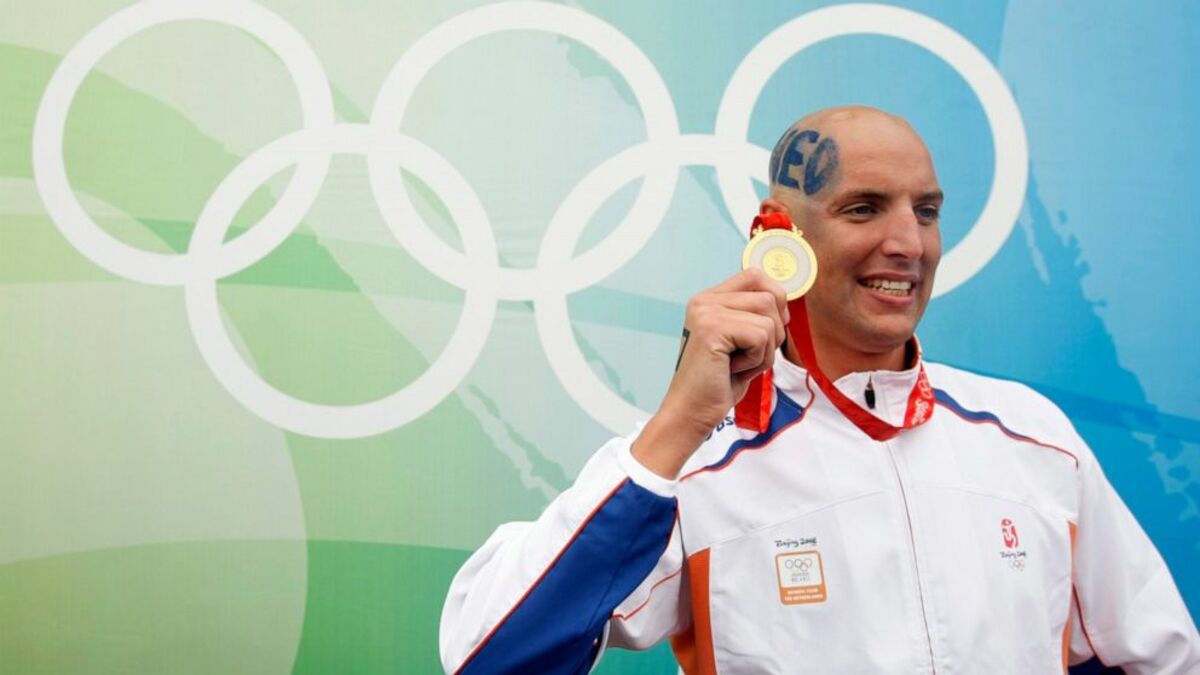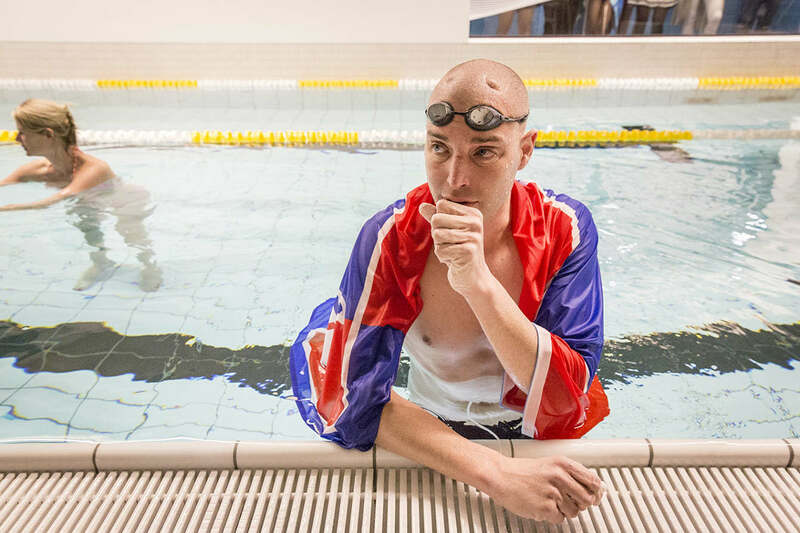Swimming blog - TRAINING 10 Questions for Open Water champion Maarten van der Weijden
In 2008, long distance swimmer Maarten van der Weijden won Olympic gold in the 10km Open Water distance after surviving leukemia in 2001. He went on a heroic path, raising funds for cancer research by taking on almost unhuman like challenges. In 2017 he attempted the 24-hour world record swim in the SwimGym, letting us witness his beautiful technique, his mindset and his process to achieve great results. How does he do it? Here’s how.
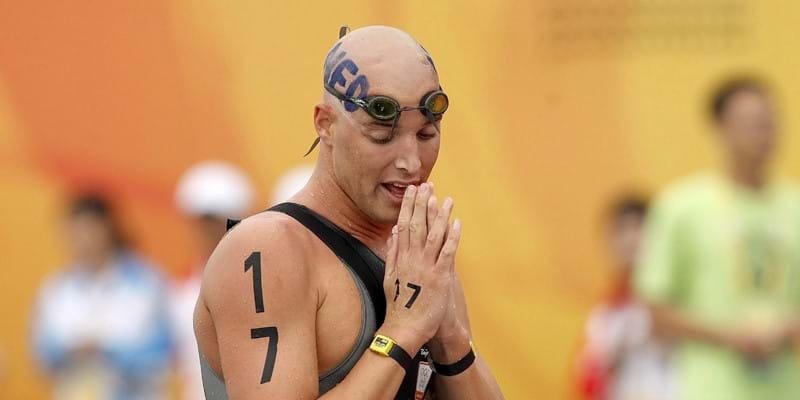
1. Which three things about yourself makes you such a successful long distance swimmer?
My big lungs: 12 liter instead of normal 6 liter that makes my body position very high so my resistance less. Two, my dedication knowing why I want to do the things I do. And three, preparing for the long races fits the person I am and the life I want to lead.
2. Looking back at your Olympic preparation towards Beijing 2008. How much of it took place in open water versus in the swimming pool?
99% took place in the pool because it’s a far more controllable environment to improve technique and swim on the right pace. Adjusting that to open water and use slip stream advance from you competitors, dealing with the current, cold and waves is more a trick that I learned from the other 1%.
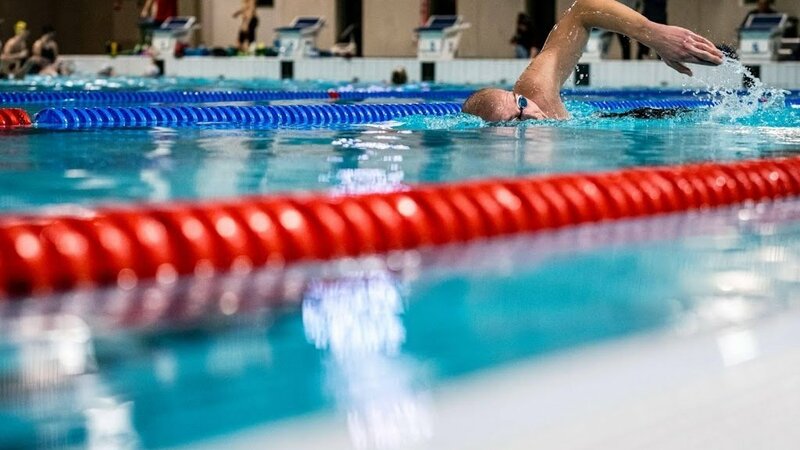
3. In 2019 you swam the legendary ice skating tour of the Eleven Cities. A distance of 195kms which took you three days to complete. What surprised you most about yourself doing this project?
Physically it surprised me that I was capable of changing my body to be able to swim for that long. Mentally I surprised myself that when it’s really hard and you want to quit; I’m used to focus on my own task. But then I discovered that being in contact with other people helped me through the hard times.
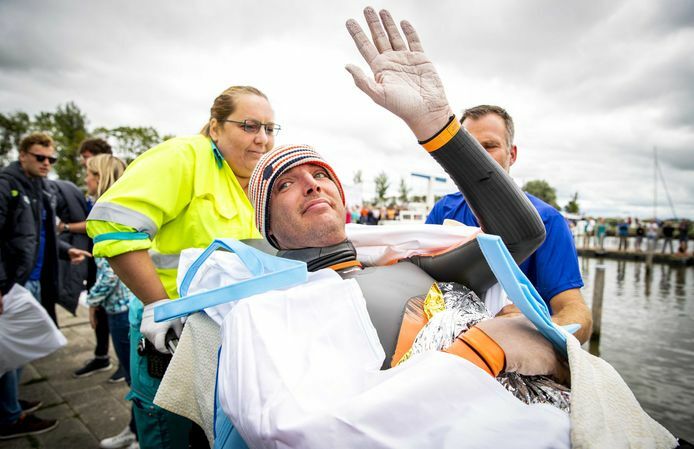
4. Do you still think about your technique when you swim a long distance?
When I stretch the distance, for instance doing that 195km, I don’t think about technique. During the longer practices I did to prepare myself, I did work on technique for quite a bit.
5. What is the hardest training set you have ever done in your life?
As preparation for the 195km I swam 4 x 50 km in the swimming pool in 4 days time. That was quite hard to do.
6. As a professional athlete, what is your best and worst habit?
Worst habit is to jump in the pool late, even after everybody has already started the warm-up. Best habit is to fix a good meal directly after practice.
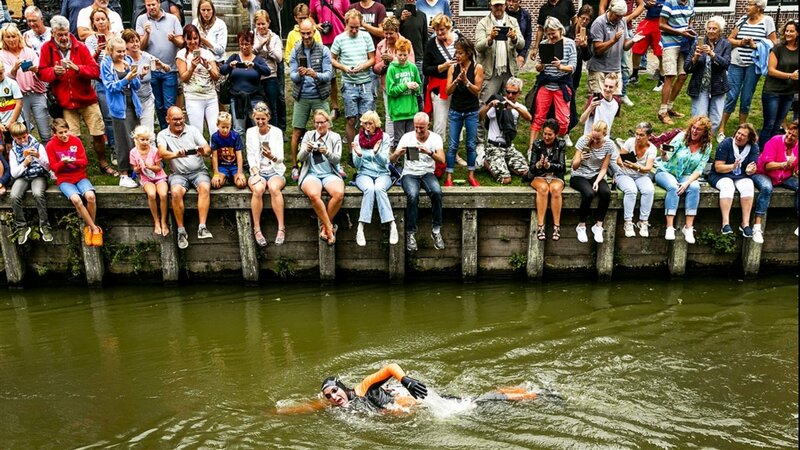
7. You’re in the middle of a transition from a long distance open water swimmer to a triathlete. What has been the most challenging so far in triathlon?
The transitions to go from swimming to cycling and cycling to running are quite challenging. In swimming you have your goggles and swimsuit and you can go. In triathlon transition it gets very complex with cycling shoes attached to your bike, hold straight by elastics, etcetera. The other thing that is very challenging is to run, as a swimmer I haven’t been running a lot, so my running is not up to par (yet).
8. Ultra swimming and Triathlon require very different body shapes. So far, you have lost 20kgs in transitioning to Triathlon. What has been the biggest shift in diet for you?
To have more daily structure and rhythm in my food intake. But also to get rid of the bad foods like candy and cookies and to eat less at evening time.
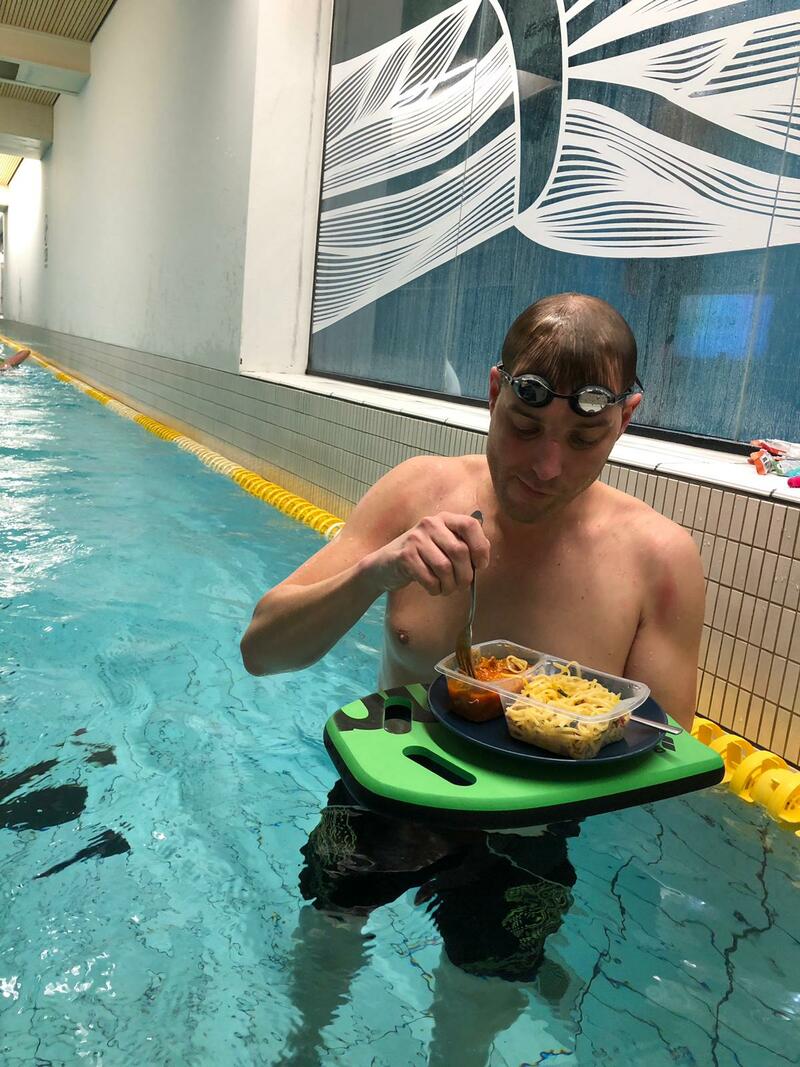
9. You aspire to do almost unhuman like projects and challenges. Where do you find the motivation on a daily basis to achieve them?
The knowledge to be able to make a difference and to raise funds for cancer research by doing so really keeps me motivated to explore new grounds in sports and life.
10. Of all the things you have achieved, what has made you the most proud?
Raising more then 12 million Euros for cancer research and making 27 specific cancer research projects possible.
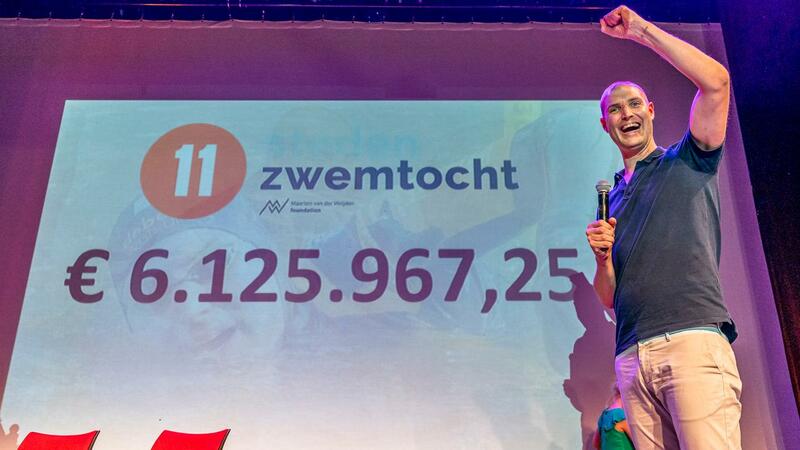
Thanks for answering our questions Maarten! Watch the video below where Maarten attempted to break the worldrecord 24 hours swimming at SwimGym Amsterdam (click on picture):
